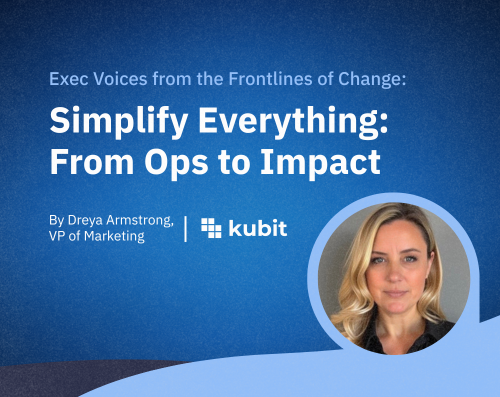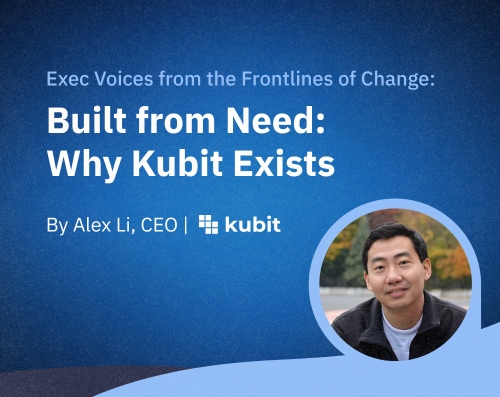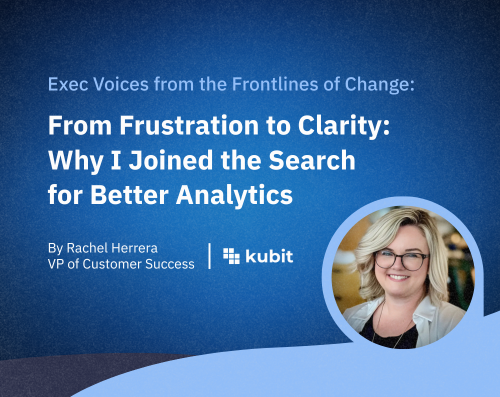Early Days in the Wild West of Martech
When I started my career, I didn’t have a grand plan to land in marketing operations. In fact, that title didn’t even exist yet. I was a channel marketer. An email marketing manager. I lived in campaign calendars, open rates, and lead scoring spreadsheets. I was focused on execution, but what I craved was clarity.
Then came the explosion. Platforms like Marketo, Eloqua, and later dozens more were flooding the scene. Martech was evolving by the day. Suddenly, the biggest challenge wasn’t how to run a campaign. It was how to make all these systems work together. It was a race to integrate, automate, and optimize. There was no playbook. We were inventing it as we went.
That’s where I found my spark. I wasn’t just someone who could operate the tools. I became someone who could build with them. Someone who could spot gaps in process and fill them with solutions that scaled. Like a lot of data analysts and technical product managers today, I took pride in solving the complex stuff. I loved seeing the impact of a well-built workflow or a new insight surfaced at just the right time.
Questioning the Status Quo
I learned early on that “best practices” often just meant “what everyone else is doing.” That never sat right with me. If the solution was widely adopted and working, we wouldn’t all be searching for a better one. So I started questioning the defaults. I looked for new tools, tried new methods, and spent time learning what was coming next instead of just refining what already existed.
That mindset shaped the rest of my career. It earned me trust with executive teams who saw the value in the clarity I could bring. It helped me move from behind-the-scenes ops work to strategic roles where I could influence the big picture. And it gave me a deep respect for the people on the front lines of transformation — the ones who don’t just maintain the machine, but improve it.
I See the Same Pattern in Data
Today, I see the same dynamic playing out inside data teams. Analysts, data product owners, and business stakeholders are stuck navigating a bloated ecosystem of tools that promise answers but often create more confusion. The dashboards don’t match. The data pipelines break. And the only people who understand how it all works are too busy answering requests to rethink the system.
There’s a lot of talk right now about how self-service analytics is broken. I agree with the frustration, but I refuse to accept the idea that we should give up. The real problem isn’t self-service itself. It’s the outdated infrastructure underneath it. It’s the duplication, the disconnected logic, and the layers of translation between the data and the people who need it.
That is why I joined Kubit. I saw an opportunity to help those people, the ones I relate to most, finally get the clarity they’ve been chasing.
Empowering the Next Generation of Change Agents
Kubit gives data teams something they’ve needed for a long time: the ability to access and analyze behavioral data directly from the warehouse, without replication or delay. But more importantly, it gives them the ability to lead. To bring insights with confidence. To respond in real time. To say, “Here’s what’s happening, and here’s what we should do about it.”
That is the kind of power I want to give to our customers. I want data product managers to walk into the room with answers, not caveats. I want analysts to spend less time cleaning dashboards and more time discovering insights. I want business stakeholders to feel ownership of the data, not intimidation by it.
Because when those people grow in their roles, their organizations grow with them.
Why This Matters to Me
Fifteen years ago, I could not have predicted how much the marketing world would change. But I watched it happen. I helped build it. I saw how quickly a team can go from reactive to strategic when they have the right tools and the freedom to use them.
Now, I feel that same shift bubbling up in data. The frustration is real. The status quo is failing. I believe we are on the edge of another transformation, one that will reshape how businesses interact with data and who gets to drive the change.
That is the work I want to be part of. That is the future I want to help build.







